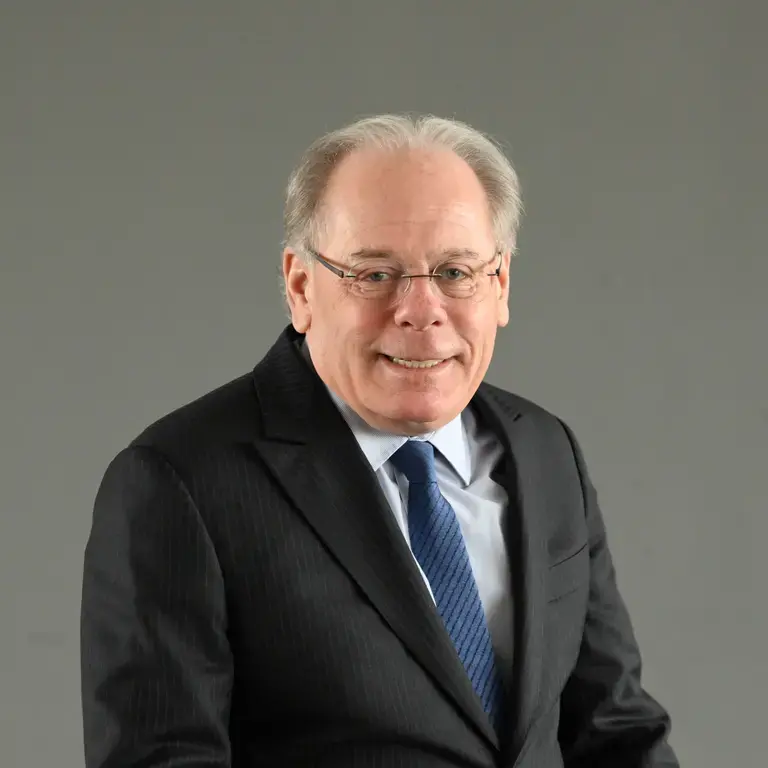By Steven Cohen, Ph.D., Director of the M.S. in Sustainability Management program, School of Professional Studies
The radical right-wing Supreme Court, given majority power by Donald Trump, continued its assault on federal regulation last week. Out of necessity, Congress enacts laws that leave the details of administration and enforcement to technical and financial experts in regulatory agencies. They don’t do this because they like giving up power to unelected bureaucrats, they do it because while they understand the problems they are trying to address, they don’t understand the complex details of the causes of those problems and cannot project the impact of the solutions they are putting in place. We live in a technologically complex world, and we depend on experts to help us navigate that complexity. This happens in public policy, and it happens in corporations. Those responsible for an organization or a jurisdiction do not understand all the details of the product, service, or public policy they are managing. Managers set broad strategic direction, settle on key performance indicators to measure progress, and delegate authority to the people who are doing the work.
When the Clean Air Act was drafted in 1970, the bipartisan team drafting the bill in the Senate explicitly addressed the issue of changing technologies and future threats to air quality. In fact, when George W. Bush was President, under prodding by a group of state attorneys general, the Supreme Court required the EPA to develop rules regulating greenhouse gasses. The Clean Air Act demanded it. While that decision remains in place, the Court continues to reject EPA’s efforts to respond to that edict and effectively regulate greenhouse gasses. This is part of the Court’s continued ideological attack on all regulation. Almost exactly two years ago, writing on this issue, I noted that the Supreme Court is attacking:
“…the very foundation of modern regulation. In the face of today’s complex, technological world, conservative state attorneys general and right-wing jurists are demanding a degree of legislative specificity that is impossible for non-experts to articulate. Our elected leaders and judges are not chemists or toxicologists. They tend to be lawyers. When they write environmental laws, they leave important details to the experts in regulatory agencies. Many contemporary regulations are the result of knowledge gained via scientific and technical expertise. Some of these regulations are controversial in conservative circles and are thought to be the product of what they’ve termed the “deep state.” This deep state is a delusional, paranoid right-wing myth, but regulatory over-reach and the arrogance of some regulators is fact and not fiction. Regulatory edicts from experts on high are deeply mistrusted by some, and while some of this mistrust is warranted, most is not. Attacks on this mythical secret cabal of decision-makers was part of Donald Trump’s political mantra…There is an actual issue here that is worth attention: regulatory over-reach. The result can be rules that do not adequately factor in indirect impacts. Scientific experts, like Supreme Court justices, can become a little full of themselves and reach for powers they should not exercise. But the fundamentals of the regulatory state require that we defer to experts in controlling the technologies developed by other experts. This is true of both social media algorithms and smokestack emissions. We need rules to navigate technological complexity and ensure it is steered to serve the public interest. Non-experts cannot formulate those rules.”
The Supreme Court’s obsession with the original intent of the framers and their failure to recognize the dangers of unregulated modern technology endangers all of us. The principles of the Constitution are sound, but I doubt that Thomas Jefferson, James Madison, and their pals could have ever envisioned social media, chemically treated no-stick frying pans, smartphones, or artificial intelligence. Every new technology brings wonderful benefits that often enlighten and enrich us. But they also generate substantial costs that must be mitigated. The streets of Manhattan are inundated with electric bikes. The drivers of these vehicles are not licensed, and e-bike batteries are unregulated. The positive results of this technology are better delivery services and easier commutes. The negative results are injured pedestrians and homes set ablaze by fires caused by batteries. It doesn’t take a genius to know that these dangers can and should be reduced by law and regulation. But when it comes to setting battery rules, it would help to ask an engineer who knows how these batteries work about the content of these rules. But, under the Court’s ruling overturning the Chevron precedent, it is unclear if federal agencies will be able to do this in the future or if their expertise will play a significant role in policymaking. The Court has deliberately delegitimized the technical expertise of regulatory agencies.
This Supreme Court is dominated by radical ideological extremists who place ideology above both common sense and science. Their abortion rules substitute the ideology of elected leaders for the medical expertise of doctors and have endangered the health of women. The Court tossed out New York City’s extremely restrictive gun control rules, which are logical limits on an armed populace wandering around our crowded subways and streets. My preference is that the NYPD have a gun monopoly on the streets of New York. But the Court rejects common sense just as it rejects the need for technical expertise.
It is not that technical experts are perfect decision-makers. Nothing could be further from the truth. One of the problems with experts is that to become an expert, they must focus narrowly on specific technologies or problems. They often fail to understand issues outside their area of expertise. The infectious disease experts who advised closing schools during COVID might have been wise to consult with experts in child development to understand the psychological impact of school closings on children. Climate scientists tend to misunderstand politics and economics. Economists often do not understand politics. Political scientists are rarely experts in greenhouse gas pollution. We need to bring environmental scientists, economists, health experts, and policy analysts together to formulate climate policy. Without cross-disciplinary expertise, we risk regulatory overreach when rules do not adequately consider indirect impacts. For example, the capital costs of decarbonizing a building might raise the costs of that building, and that could exacerbate our crisis in affordable housing.
This means we need more sophisticated rules based on multiple sources of expertise. The fact that regulating complexity is difficult is not an argument for deregulation, it is an argument for better regulation. Abandoning rules to the mercies of the market is a prescription for anarchy and rule by economic power alone. Some believe that regulation stifles innovation and inhibits economic growth. That can certainly happen. But more often, the need to comply with new rules results in the development of innovative technologies and creative work processes. Today’s highly regulated automobiles are safer, less prone to breakdown, and more efficient than their unregulated predecessors.
We also need to understand that rules—or command and control regulations—are not the only way to influence corporate or individual behavior. Back in 1991, my colleague and friend Shel Kamieniecki and I wrote a book entitled Environmental Regulation Through Strategic Planning. In that book, along with another we published with MIT Press about 15 years later, we discussed a wide variety of activities that could be deployed to influence the behavior of polluters. These ranged from financial and tax incentives to public education to command-and-control regulation. The idea was to focus on the goals and needs of regulated parties and to balance those needs with the needs of the public. Over three decades later, the world has developed vastly enhanced technologies of observation and communication, such as drones, modern satellites, cloud computing, and smartphones. We’ve invented advanced methods of analysis that utilize computer models and artificial intelligence. These technologies could improve rule-making and enforcement. They could enable us to fine-tune efforts to influence and regulate corporate behavior and avoid the blunt instruments of traditional rules and enforcement. Smart regulation would reduce over-regulation. Sadly, instead of modernizing regulation, the radical right in Congress, the think tanks, the Supreme Court, and their short-sighted corporate allies are trying to eliminate regulation. This is dangerous to the public good and, ironically, to corporate profits as well. The anti-regulatory forces adhere to a budget strategy they call “starve the beast.” The beast they hope to starve is the regulatory state, and by denying regulatory agencies resources, they hope to destroy the organizational capacity to regulate. What they succeed in doing is ensuring that regulation is a blunt and unsophisticated policy mechanism. Coupled with the Supreme Court’s anti-expert decisions, we end up using underfunded and outdated 20th-century methods to regulate an increasingly complex set of productive technologies and methods of production. This is idiotic, dangerous, and self-destructive.
Fortunately, our dysfunctional national government is not the only force promoting environmental health, safe food and drugs, fair economic competition, and similar public goods. We have a federal system where state and local governments have influence. Corporations and investors are increasingly concerned about the financial impact of environmental risk. Finally, people don’t like ingesting poison and tend to enjoy breathing. They support a clean environment. While it would be better for the Supreme Court to help protect Americans from harm, we’ve managed to survive horrible decisions in the past, so I guess we’ll have to develop workarounds to these as well.
Views and opinions expressed here are those of the authors, and do not necessarily reflect the official position of Columbia School of Professional Studies or Columbia University.
About the Program
The Columbia University M.S. in Sustainability Management program offered by the School of Professional Studies in partnership with the Climate School provides students cutting-edge policy and management tools they can use to help public and private organizations and governments address environmental impacts and risks, pollution control, and remediation to achieve sustainability. The program is customized for working professionals and is offered as both a full- and part-time course of study.



